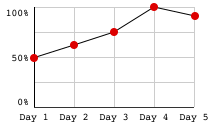Differentials of 2 Variable Functions
Suppose there is a 2-variable function . Then we say that the differential is:
Differentials of 3 Variable Functions
Of course, differentials can be extended to 3-variable functions as well. Suppose there is a 3-variable function . Then we say that the differential is:






